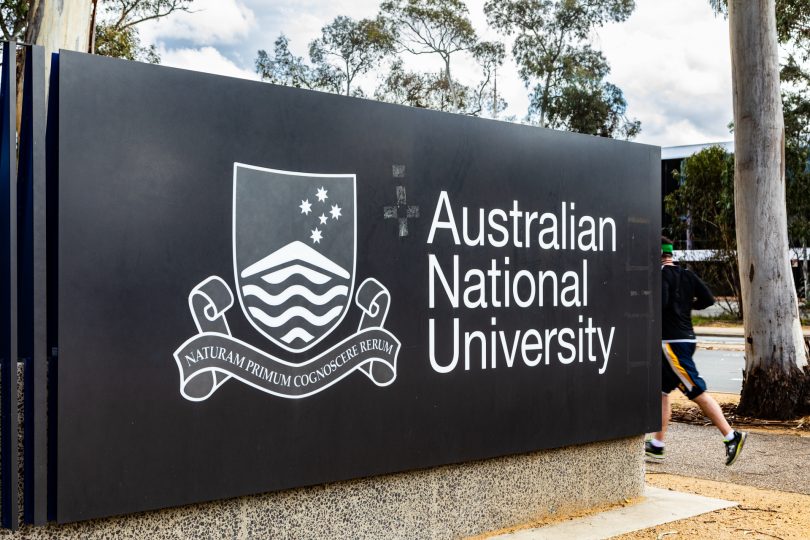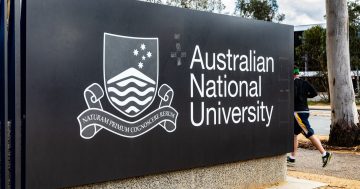
The ANU is considering imposing a vaccine mandate for staff and students at the university attending on-campus classes. Photo: Michelle Kroll.
The Australian National University is considering imposing a vaccine mandate on staff and students who wish to attend classes on campus this semester, but it’s seeking community views on vaccination ahead of making any decision.
A spokesperson for the university said while some members of the community are already required to be vaccinated – if they work with vulnerable communities, for example – there is no broader requirement for everyone in the community to be vaccinated and boosted when eligible.
“We are currently seeking our community’s views on vaccination as we consider the potential introduction of a requirement for everyone in the ANU community to be fully vaccinated – except for people with medical exemptions,” the spokesperson said.
National Tertiary Education Union (NTEU) ACT Division Secretary Dr Lachlan Clohesy said while the union supports vaccination, “questions remain over valid exemptions to any mandate, and any consequences for unvaccinated staff”.
Dr Clohesy said any measures which affect workplace health and safety should be the subject of rigorous consultation between the ANU and its employees, including the NTEU as the union for ANU staff.
“The ANU’s survey seeks to gauge staff opinion on a vaccine mandate, but more rigorous consultation will be required for this or any other proposed WHS measure before any implementation,” he said.
Across town, the University of Canberra will not instate a campus-wide vaccine mandate.
Acting Vice-Chancellor Professor Geoff Crisp noted the university has taken a “proportionate and risk-based approach to looking at how we can keep staff, students and the community safe”.
Measures such as mask mandates, density limits and social distancing will all be in place, and additional restrictions could be brought in in line with government advice to do so, Professor Crisp said.
He added that vaccines and boosters are strongly encouraged for all staff and students. There are some locations where full vaccination is required, such as student accommodation or medical facilities.
Other students – such as those undertaking health or teaching – may be covered by government vaccine mandates.
While the ACT has nation-leading vaccination rates – 98.6 per cent of the adult population are fully-vaccinated, and over 40 per cent of the population has received a booster dose – many university students travel from interstate and overseas.
It is a Federal Government requirement that international travellers who arrive in Australia be fully vaccinated or provide proof that they cannot be vaccinated for medical reasons.
Both the ANU and UC have begun welcoming the first few groups of international students back to Canberra after two years of disruptions.
International students contribute around $1 billion each year to the ACT economy and ANU, in particular, has suffered extensive losses due to the disruptions to the program.
The ANU is planning a cautious return to on-campus learning when the semester begins next month.
“Classes will be taking place on campus, however, virtual options will be available when they’re needed, including when students and teachers find themselves needing to isolate,” ANU Vice-Chancellor Brian Schmidt wrote in a blog post earlier this month.
The ACT Government is working with both the ANU and UC to establish safe working conditions for students and staff.
UC students returned to campus today (31 January) for O-Week, while staff will begin returning to work the following week – although this will be flexible.
“The university is considering multiple scenarios, risk assessments, and measures to facilitate a return to campus that should keep our campus community as safe as possible,” a spokesperson said.
















